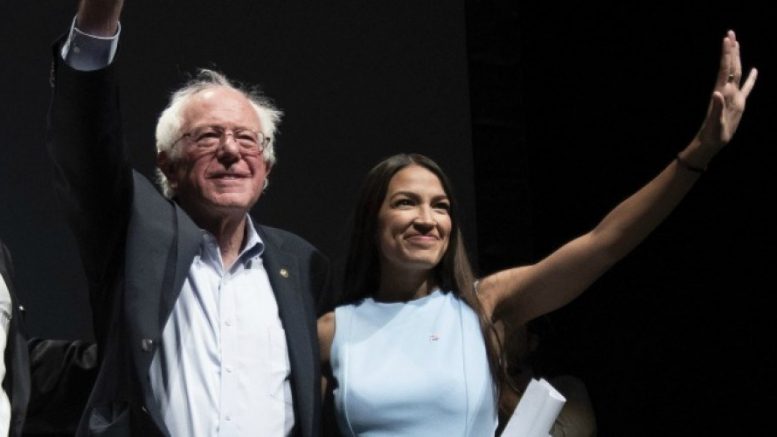This article appears in the current issue of Solidarity (23 October 2019). Click here to see the whole issue (PDF).
Bernie Sanders has 100 days to change American politics forever.
In a little more than 14 weeks, the voters of the small, largely rural state of Iowa will choose who they want to be the Democratic Party’s candidate to run against Donald Trump in November 2020. This is the first of a series of primary elections to choose delegates for the Democratic National Convention which will be held in Milwaukee in July.
While the mainstream media has divided up the candidates into “moderates” and “progressives,” there is actually only one candidate running on the issue of class, and that is Sanders.
Though Warren is a favourite of many progressives, and would certainly be the second choice for many Sanders supporters, both her record and her proposals fall far short of what socialists want.
Warren proudly proclaims herself a supporter of capitalism – a modified, more humane capitalism to be sure – and rejects the label of socialist, which Sanders embraces.
It’s not a question of semantics; there are genuine differences between the Sanders and Warren campaigns.
For example, Sanders rejects large corporate donations, full stop. He has raised more money than any other candidate, from more donors, without taking gifts from the wealthy. Warren has said she won’t take corporate money either – during the primary campaign. But once the Democrats have chosen their candidate, she says that if she wins, she’ll consider accepting corporate donations.
Warren is a supporter of free university education to a point – but believes in means testing. Sanders considers education a human right, like health care.
Sanders and Warren both support a Green New Deal to battle climate change, but only Sanders says that nationalising the fossil fuel industry should be part of that.
There are many other examples of policy differences, on all of which Sanders is on Warren’s left.
Their biographies too are radically different – Sanders having been a socialist since the late 1950s, while Warren until 1996 was a Republican. Like Obama, Warren styles herself as a policy wonk with plans to solve each individual problem. Sanders says that as president he’d be the “organiser in chief”, with a strong focus on strengthening grassroots social movements and the trade unions in particular. His campaign slogan reflects this: “Not me. Us.”
For the next 14 weeks, Sanders will continue criss-crossing the country, with a focus on the early primary states – Iowa, New Hampshire, Nevada and South Carolina. In all of them but the last, he’s polling well.
The leading candidate remains former Vice President Joe Biden, but he’s increasingly seen as out of touch and not a viable alternative to Trump. He has been steadily slipping in the polls. Those same polls indicate that working class voters who like and trust Biden often see Sanders as a good second choice.
The biggest test for Sanders and all the others comes on Super Tuesday – 3 March 2020 – when 13 states hold their primaries. In addition, on that day Democrats Abroad holds its Global Presidential Primary in which any American citizen can vote. Here in the UK, there will be polling stations in London and several other cities, and people will have the chance to vote remotely as well.
Should Sanders win the nomination – and then the presidency – it will mark a seismic shift in American politics towards one based on social class, ending up with a pro-working class leader who grew up on the socialist left sitting in the White House.
